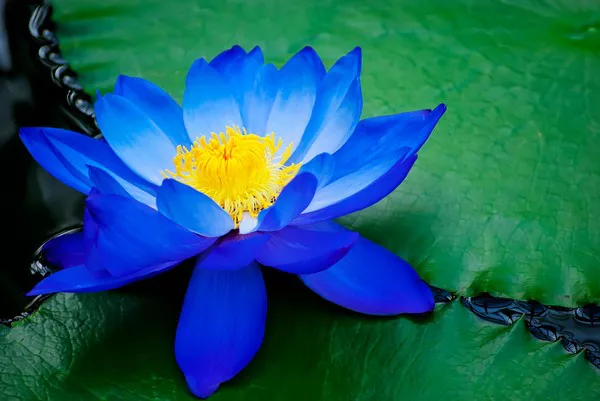In the world of gardening, the presence of rabbits can pose a significant challenge. These furry herbivores are notorious for nibbling on plants, particularly flowers, leaving gardeners to wonder which varieties are less likely to be devoured. Creating a rabbit-resistant garden involves carefully selecting flowers that are unappealing to these voracious nibblers.
Understanding Rabbit Behavior
Before delving into the world of rabbit-resistant flowers, it’s essential to understand the behavior and dietary preferences of these furry creatures. Rabbits are herbivores with a penchant for tender, succulent vegetation. While they may eat a wide variety of plants, certain flowers possess characteristics that make them less appealing to rabbits. These characteristics include strong scents, bitter tastes, and textures that are unappealing to their sensitive palates.
Leveraging Strongly Scented Flowers
One effective strategy to deter rabbits from munching on your floral display is to incorporate strongly scented flowers into your garden. Rabbits rely heavily on their sense of smell, and certain fragrances are known to repel them. Flowers like lavender, marigolds, and geraniums not only add a delightful aroma to your garden but also act as natural rabbit deterrents. Planting these flowers strategically can create a protective barrier around more vulnerable plants, discouraging rabbits from exploring further.
Exploring Bitter-Tasting Blooms
Rabbits are selective eaters, and they often avoid plants with bitter tastes. Incorporating flowers with bitter compounds can be an effective way to protect your garden from these persistent nibblers. Calendula, also known as pot marigold, is one such flower with a slightly bitter taste that rabbits tend to avoid. By integrating bitter-tasting blooms into your garden design, you add an extra layer of protection against rabbit-induced damage.
Choosing Textures Unfavorable to Rabbits
The texture of a flower’s foliage can play a crucial role in deterring rabbits. Opting for flowers with coarse or fuzzy leaves can make them less appealing to these herbivores. Lamb’s ear, with its soft, velvety texture, is an excellent example of a flower that rabbits typically avoid. By strategically placing such flowers in your garden, you create an environment that is less inviting to rabbits, reducing the likelihood of them indulging in a floral feast.
Embracing Rabbit-Resistant Perennials
When planning a garden that withstands the persistent appetites of rabbits, incorporating rabbit-resistant perennials is a wise choice. These resilient plants not only return year after year but also have characteristics that make them less attractive to rabbits. Yarrow, for instance, is a hardy perennial with feathery foliage that rabbits tend to avoid. By incorporating a variety of rabbit-resistant perennials, you can establish a garden foundation that withstands the test of time and nibbling rabbits.
Utilizing Natural Repellents
In addition to selecting specific flowers, utilizing natural repellents can enhance your garden’s rabbit resistance. Plants like rue and wormwood release odors that rabbits find unpleasant, serving as an extra layer of protection for your blooms. Intercropping these natural repellents with your favorite flowers can create a robust defense against rabbit intrusion while maintaining the visual appeal of your garden.
Implementing Protective Fencing
While selecting rabbit-resistant flowers is crucial, implementing physical barriers can provide an added layer of protection. Installing protective fencing around your garden helps deter rabbits and prevents them from accessing your cherished blooms. Choose fencing with small openings to ensure rabbits cannot squeeze through, and make sure it extends underground to prevent burrowing. This proactive measure, combined with rabbit-resistant flowers, creates a comprehensive strategy for safeguarding your garden.
Avoiding Rabbit Favorites
Understanding the flowers that rabbits find particularly enticing is just as important as choosing rabbit-resistant varieties. While it might seem counterintuitive, avoiding planting rabbit favorites can significantly reduce the likelihood of your garden becoming a rabbit buffet. Common favorites include tulips, lilies, and pansies. By steering clear of these attractive options, you make your garden less appealing to rabbits, encouraging them to look elsewhere for their next meal.
Creating Distractions with Rabbit-Friendly Plants
To further deter rabbits from indulging in your prized blooms, consider creating designated areas with rabbit-friendly plants. By designating specific spaces filled with rabbit-approved vegetation, you provide an alternative food source that may divert their attention away from your more delicate flowers. This strategic landscaping approach allows you to coexist with rabbits while preserving the integrity of your garden.
Maintaining a Clean and Tidy Garden
A clean and tidy garden not only enhances its aesthetic appeal but also serves as a practical strategy for reducing rabbit activity. Remove debris, fallen leaves, and tall grasses that can provide hiding spots for rabbits. A well-maintained garden not only minimizes potential rabbit habitats but also makes it easier to spot and deter these intruders before they can cause significant damage.
Monitoring and Adjusting Strategies
Creating a rabbit-resistant garden is an ongoing process that requires monitoring and adjusting strategies as needed. Regularly inspect your garden for signs of rabbit activity, such as nibbled leaves or droppings. If you notice areas of vulnerability, consider reinforcing your defenses by planting additional rabbit-resistant flowers, adjusting fencing, or incorporating new natural repellents. By staying vigilant and adapting your approach, you can maintain a beautiful and thriving garden despite the presence of these persistent herbivores.
Conclusion
In the quest to cultivate a garden that flourishes despite the presence of rabbits, strategic planning and thoughtful plant selection are key. By understanding the characteristics that make certain flowers unappealing to rabbits, leveraging natural deterrents, and implementing protective measures, you can create a garden that not only survives but thrives. The diverse array of rabbit-resistant flowers provides ample options for designing a visually stunning and resilient garden that brings joy without becoming a buffet for these furry nibblers.


